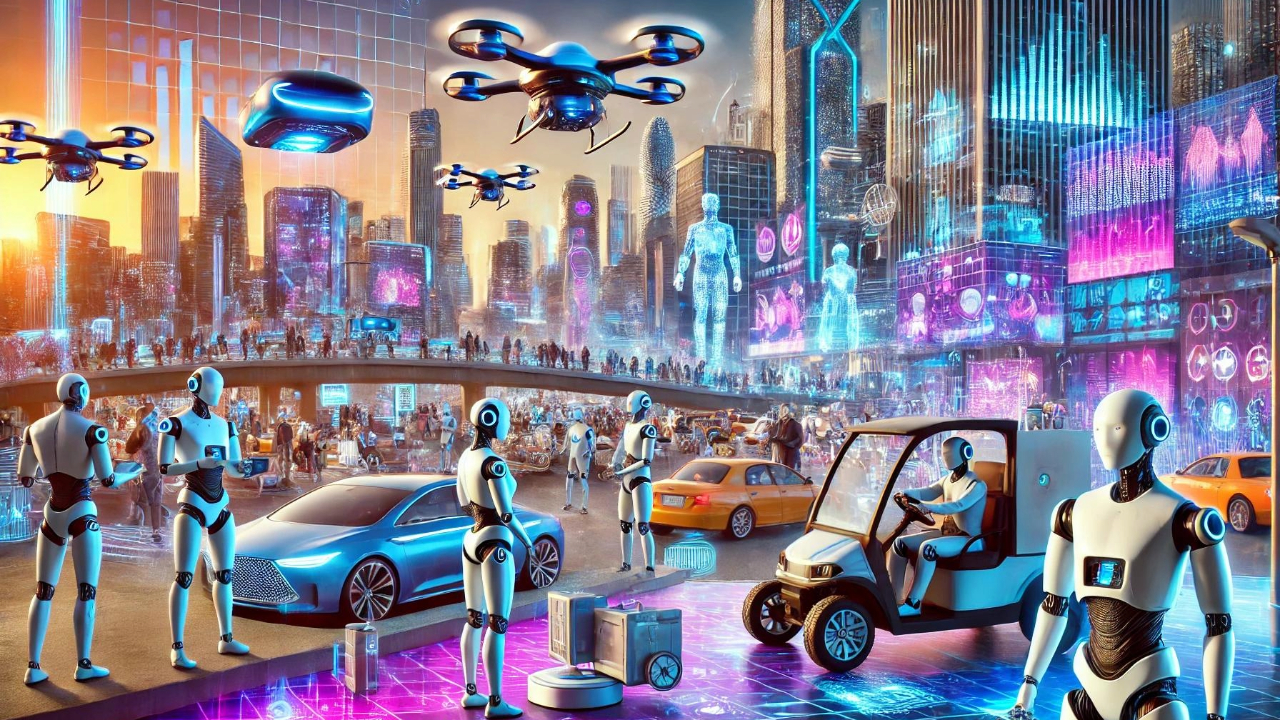The discussion about artificial intelligence is often compared to the early days of the utilisation of electricity around 150 years ago: Around 1800, electricity was available from batteries and from the 1860s onwards thanks to the invention of the electric generator (Werner von Siemens). While initially only individual applications made electricity usable for a very small part of the population, development accelerated with more and more applications such as light or mechanical work, and much later also electrical computing and "thinking" via computers. And while electricity was often referred to as "machines" (artificial performance), the term "bot" became established for digital, intelligent performance. Which bots will perform cognitive work in 50 years' time and how will our working world change as a result? What will change massively in just a few years and what will simply remain as it is?
The word "washing machine" simply explains the functionality of washing clothes without tedious physical labour, made possible today by electricity. In the future, machines will take care of many of the mental tasks that require effort and time from us today. We are now at a time when we can at best only imagine many applications. The chat bots, i.e. conversational machines of the younger AI generation, enable us to have shallow conversations and gather unreliable information. Data can be presented differently, for example visualised, or information distributed over many pages can be summarised and translated into other languages. This is undoubtedly practical, but not yet the big breakthrough. American tech companies have already been punished on the stock market for this lack of a business approach.
The co-pilot at Microsoft should be able to answer emails that are easy to clarify on its own, automatically take care of filing in the mailbox with a summary, create process diagrams in Word from a text explanation and create comments on Excel calculations. Gemini could build websites independently and advertise them in a Google-optimised way. It could systematically record and retrieve knowledge within the company that is at risk of being lost due to demographic change. None of this is so easy today. Many specialists are needed to create somewhat more complex combinations, which would undoubtedly be necessary for the creation of "products" or "services" with their own added value. However, we can already see that these solutions could exist in the near future.
The regular series of attempts to create a self-sufficiently functioning business enterprise from the "conversation" with an AI, quasi automatically, are not yet successful. Claude, Gemini or Chat-GPT could actually take over the realisation of certain online offers completely from the discussion about a business model and would only need the legal framework and a bank account. A dream of the future. Just as many tools for the film industry are currently either in the experimental stage or merely represent further support for existing job profiles. Journalistic texts are too imprecise, automated translations are sometimes incorrect, visual interpretations are not contextualised enough and sample calculations are simply out of touch with reality due to the confusion of units.
Anyone who works semi-automatically with image AI systems, for example in Photoshop, is regularly thrilled; anyone who wants to create an invitation card fully automatically will despair. Even in strictly regulated systems, such as process documentation according to DIN standards, AI produces unusable estimated images.
We need the engineers who create the washing machine for the head from electricity, mechanics and application understanding.
Your Ensider:Team
(Author: Markus Vogelbacher)


